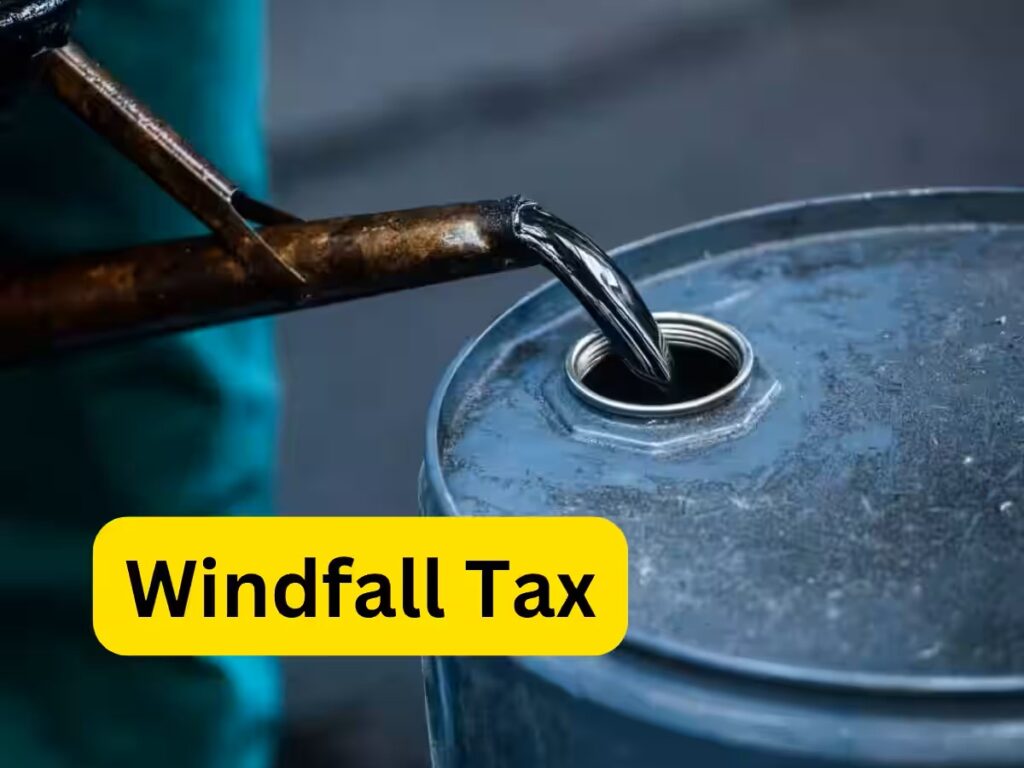Table of Contents
ToggleWhat is a Windfall tax?
A windfall tax is a tax levied on unexpected or excessive profits earned by companies or individuals due to unforeseen events, favorable market conditions, or regulatory changes.
Historical Context and Purpose:
Windfall taxes have been implemented in various countries throughout history to address concerns about income inequality, excessive corporate profits, and the fair distribution of wealth.
Importance in Economic Policy:
Windfall taxes are a tool used by governments to capture unearned gains and redistribute wealth in the economy, often during periods of economic hardship or when specific industries experience extraordinary profits.
Understanding Windfalls
Windfall gains refer to unexpected profits received by businesses or individuals without additional effort or investment on their part.
Windfall profits can arise from factors such as natural resource discoveries, technological breakthroughs, government contracts, or changes in legislation.
What industries or scenarios commonly generate windfalls?

Examples include the oil and gas industry during periods of high oil prices, pharmaceutical companies benefiting from monopoly rights on patented drugs, and real estate developers profiting from rezoning decisions.
Rationale for Windfall Taxation
Economic Justifications: Windfall taxes are justified on economic grounds to prevent market inefficiencies, reduce rent-seeking behavior, and ensure a fair distribution of economic rents.
Social Equity Considerations: Windfall taxes address concerns about income inequality by capturing excess profits and using them to fund social programs or reduce the tax burden on lower-income individuals.
Balancing Public Interests with Private Profits: Windfall taxes aim to strike a balance between incentivizing entrepreneurship and innovation while preventing exploitation of market power or natural resources for excessive gain.
Implementation of Windfall Tax
Legislative Framework: Windfall tax laws typically define the criteria for identifying windfall profits, determining tax rates, and administering the tax collection process.
How are windfall taxes calculated?: Various methods exist for calculating windfall taxes, including excess profit taxes, resource rent taxes, and specific tax rates applied to windfall gains.
Administration and Compliance Challenges: Implementing windfall taxes may pose challenges related to defining windfall profits, measuring tax liability accurately, and ensuring compliance by affected entities.
Impact and Effects of Windfall Taxes
Effects on Targeted Industries or Sectors: Windfall taxes can affect the profitability, investment decisions, and competitiveness of industries experiencing windfall profits.
Economic Consequences: Windfall taxes may influence market dynamics, resource allocation, and economic growth by redistributing wealth and altering incentives for production and investment.
Behavioral Responses from Affected Entities: Companies subject to windfall taxes may adjust their pricing strategies, investment plans, or lobbying efforts in response to changes in their after-tax profitability.
Case Studies
Historical Examples of Windfall Taxes:
India recently increased its windfall tax on crude oil on March 1, 2024, to ₹4,600 per metric tons from ₹3,300.
EU Solidarity Contribution:
- September 2022: The European Council proposed a temporary tax on the surplus profits of energy companies to help mitigate the impact of high energy prices on consumers and businesses.
- October 26, 2022: The Council adopted the regulation establishing the solidarity contribution, which applies to profits exceeding a 20% increase compared to the average of the past four years.
- Current status: The specific details of the tax, including its duration, are still being determined by individual member states, and may be adjusted based on the evolving energy situation.
UK’s Bank Levy:
- 2011: Introduced as a temporary measure to raise funds in the wake of the financial crisis and replenish government coffers.
- 2015: Made permanent with adjustments to the tax rate and base over time.
- Current status: Remains in effect with ongoing discussions about potential further adjustments.
Examples include the windfall profits tax imposed on oil companies in the United States during the 1980s and windfall taxes on mining companies in Australia and Chile.
Comparative Analysis of Different Approaches:
Different countries have adopted varying approaches to windfall taxation, with implications for revenue generation, industry competitiveness, and economic outcomes.
Lessons Learned and Best Practices:
Insights from past experiences with windfall taxes can inform policy design and implementation to maximize effectiveness and minimize unintended consequences.
Controversies and Criticisms
Opposition from Industry and Investors: Businesses and investors may oppose windfall taxes, arguing that they discourage investment, stifle innovation, and undermine economic efficiency.
Potential Negative Effects on Investment and Innovation: Critics contend that windfall taxes can deter companies from pursuing risky ventures or making long-term investments, thereby reducing economic growth and technological progress.
Alternative Policy Proposals: Alternative approaches to addressing windfall profits include adjusting royalty rates, implementing profit-sharing schemes, or investing windfall revenues in infrastructure or education.
Future Outlook
Potential Expansion or Retraction of Windfall Tax Policies: The future of windfall taxation may depend on evolving economic conditions, political dynamics, and public attitudes towards income distribution and taxation.
Emerging Trends and Challenges: Technological advances, environmental concerns, and geopolitical shifts may create new opportunities and challenges for windfall tax policy in the future.
Role in Shaping Economic Policy Landscape: Windfall taxes are likely to remain a topic of debate and experimentation as governments seek to balance economic growth, social equity, and fiscal sustainability in an increasingly interconnected global economy.
Conclusion
Summary of Key Points: Windfall taxes play a critical role in addressing concerns about income inequality, market distortions, and the fair distribution of economic rents.
Reflection on the Significance of Windfall Taxation: By capturing unearned gains and channeling them towards public purposes, windfall taxes contribute to a more equitable and efficient allocation of resources in the economy.
Call to Action or Policy Recommendations: Policymakers should carefully consider the design and implementation of windfall tax policies to maximize their effectiveness while minimizing unintended consequences, ensuring that they contribute positively to overall economic welfare.
FAQs
Why EU would tax energy when prices are already high ?
While it may seem counterintuitive, there can be several reasons for this:
1. Revenue Generation: During periods of high energy prices, governments can see significant increases in tax revenue from energy taxes. This can be used to fund various government programs, including social safety nets for those most affected by high energy costs.
2. Discouraging Excessive Consumption: High energy prices often discourage excessive consumption, but the government might want to further incentivize conservation through additional taxes. This can be a way to promote energy efficiency and reduce dependence on fossil fuels in the long run.
3. Windfall Profits Tax: In some cases, governments might introduce windfall taxes specifically targeting the excess profits earned by energy companies during periods of high prices. This can be viewed as a way to redistribute some of these profits back to society, especially if they are deemed excessive.
4. Policy Mix: Sometimes, governments might use a combination of policies to address high energy prices. This might involve implementing targeted support or subsidies for vulnerable populations while simultaneously taxing energy to discourage excessive consumption or generate revenue for other needs.
It’s important to note that choosing to tax energy during high prices is a complex decision with potential benefits and drawbacks. While the government aims to achieve specific goals through such measures, there can be negative impacts on businesses and consumers, depending on the specific design and implementation of the tax. Understanding the broader context and the rationale behind the policy is crucial for forming an informed opinion on its effectiveness and fairness.
Who will benefit from windfall tax?
Windfall taxes benefit society by ensuring fair distribution of wealth, providing additional government revenue, reducing income inequality, promoting fair competition, and incentivizing sustainable practices.
What are the advantages and disadvantages of windfall tax?
Advantages windfall tax:
- Fair Distribution of Wealth: Windfall taxes ensure that excessive profits are shared equitably among society, reducing income inequality.
- Additional Government Revenue: Windfall taxes generate extra income for governments without imposing heavy burdens on the broader population.
- Promotion of Fair Competition: Windfall taxes level the playing field in industries, preventing market distortions and fostering fair competition.
- Incentivizing Sustainable Practices: Windfall taxes can encourage environmentally sustainable practices by penalizing excessive profits from resource exploitation.
Disadvantages windfall tax:
- Potential Industry Opposition: Businesses and investors may oppose windfall taxes, arguing they discourage investment and innovation.
- Complexity and Administration Costs: Implementing windfall taxes can be administratively challenging, requiring careful calculation methods and compliance monitoring.
- Economic Effects: Windfall taxes may influence investment decisions and market dynamics, potentially affecting economic growth and competitiveness.
- Risk of Unintended Consequences: Windfall taxes may have unintended consequences, such as companies passing costs onto consumers or reducing investment in affected industries.
How are windfall profits generated?
Windfall profits can arise from factors such as natural resource discoveries, technological breakthroughs, government contracts, or changes in legislation, leading to unexpected or excessive gains for businesses or individuals.
Why do governments impose windfall taxes?
Governments impose windfall taxes to capture unearned gains, address concerns about income inequality, and ensure a fair distribution of wealth in the economy.
The queries and topics mentioned below have all been covered in the article.
What is windfall tax in India ?
What is windfall tax on crude oil?
What is windfall tax on crude oil, Petroleum and Oil and Gas in India?
What is windfall tax upsc?
What Is Windfall Tax Example

Jugaad on Two Wheels: The Hilarious Bike Parcel Hack in Karnataka
The Great Karnataka Bike Parcel Hack: A Jugaad Masterclass #RapidoParcel: In a creative yet controversial move, ride-hailing platform Rapido has found a way around Karnataka’s

Denmark’s Digital Sovereignty Revolution: Linux and LibreOffice Lead the Way
Introduction to Denmark’s Bold Move In June 2025, Denmark’s Ministry of Digital Affairs made headlines by embracing digital sovereignty, ditching Microsoft Windows and Office 365

🏏Sports as a Business Strategy: Insights from Vijay Mallya’s RCB Ownership
🧠 Sports as a Business Strategy (Tool) In modern business, few platforms offer better engagement and emotional connection than sports. From football clubs in Europe

🙏 Apologies in Leadership: Vijay Mallya Public Apology
🧠 Introduction: The Role of Apologies in Leadership In the corporate world, apologies aren’t signs of weakness—they’re strategic acts of leadership. When made with sincerity

Audiobook Production Costs: Navigating Recording Artists, Studio Expenses, and AI’s Impact
The audiobook industry is booming, with over 130 million listeners in the U.S. alone in 2021 and a growing global appetite for audio content. Producing

Media Trial of Vijay Mallya: How Public Perception Shaped Vijay Mallya’s Legacy
Introduction: Media’s Influence on Business Narratives In today’s hyper-connected world, media narratives can make or break a business reputation. For Vijay Mallya, once known as


Wow Thanks for this review i find it hard to obtain excellent facts out there when it comes to this subject material thank for the article website
Thank you for your kind words! I’m delighted that you found the article insightful. Sustainability and finance are complex subjects, and it’s essential to have access to accurate and comprehensive information when discussing them. If you have any further questions or topics you’d like to explore, feel free to reach out. I’m here to provide more insights and facilitate meaningful discussions. Looking forward to engaging with you further!